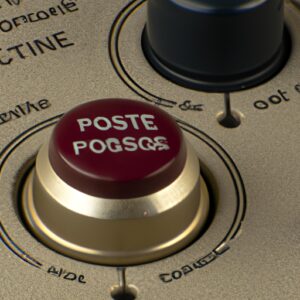The Role of Audio Restoration in Podcast Audio Production: Tips and Best Practices
A podcast can be a wonderful tool for spreading your message and connecting with like-minded individuals. However, the success of a podcast depends heavily on the quality of its audio. Poor audio quality can distract listeners from the message you’re trying to convey; hence, it’s essential to ensure that your podcast sounds crystal clear. This is where audio restoration comes in.
What is Audio Restoration?
Audio restoration is the process of improving the quality of an audio recording to make it sound clearer and more natural. This process involves various techniques, such as noise reduction, equalization, and compression.
Why is Audio Restoration Necessary in Podcast Audio Production?
Poor audio quality can make it hard for listeners to focus on your message. Factors that can affect audio quality include recording environment, microphone quality, and background noise. However, with audio restoration, you can make your podcast sound as professional as possible, showcasing your content in the best possible light.
Top Tips for Audio Restoration in Podcast Audio Production
- Use high-quality recording equipment: One of the best ways to ensure high audio quality is to use the best recording equipment. Invest in a good microphone that can help you capture clear, noise-free audio.
- Record in a quiet environment: Record in a quiet place to minimize background noise. If you’re plagued with traffic noise or construction, consider insulating your recording space with acoustic foam or noise reduction curtains.
- Edit and clean up audio files: There are several audio editing software on the market that can help you clean up your audio files. Audacity is one of the most common, and it’s free!
- Equalize your audio: Equalization can help you adjust the frequency of sounds in your audio, making it sound more natural. Be sure to clean up any high-pitched sounds that can distract listeners.
Best Practices for Audio Restoration
- Experiment with different audio restoration techniques: There are several audio restoration techniques to improve your audio quality. Experiment with different techniques to find what works for you.
- Be patient: Audio restoration can be a time-consuming process. Be patient, and if necessary, consult with an expert.
- Do not overdo it: While it’s crucial to improve your audio quality, be careful not to overdo it. Striving for perfection can be detrimental to your podcast’s creativity and spontaneity.
Conclusion
Audio restoration is an essential aspect of podcast audio production. With the right equipment, environment, and editing software, you can make your podcast sound as professional as possible. Experiment with different techniques, be patient, and don’t be afraid to make mistakes. With these tips and best practices, you’re well on your way to producing a high-quality podcast.






